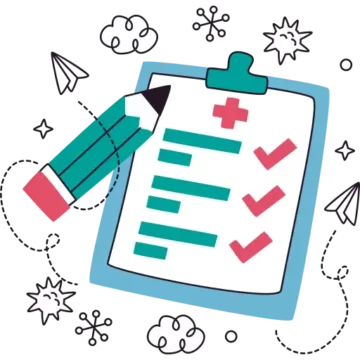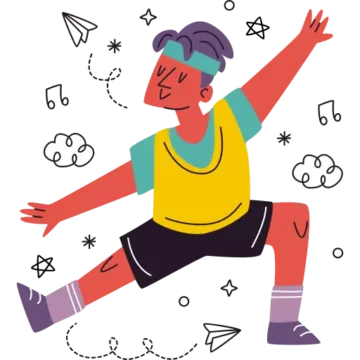Physiotherapy for Vertigo
Are you suffering from dizziness and vertigo? If so, you know how debilitating these conditions can be. But there is hope. At Brentwood Physio, we specialize in the diagnosis and treatment of vertigo, BPPV, neuritis, vestibular issues and the management of concussion-related symptoms.

We have years of experience with helping patients, like you, recover and get back to their lives. Our certified vestibular physiotherapists in Calgary will work with you to develop a treatment plan that meets your needs and relieve symptoms in as early as your first appointment.
You want your life back. We can help. Contact us today to schedule a consultation. Click here to book an appointment
What causes Vertigo?
A lot of people don’t know what causes vertigo. While more common in older individuals, it can happen to younger people too. The most common causes of vertigo are minor/major head trauma (such as a slight head bump or a motor vehicle accident), inner ear disorders, post-surgery, infection, and disease. For older individuals, the natural degeneration of the vestibular system can cause vertigo. What’s worse is that symptoms can strike without warning: you could be fine one day, and wake up feeling ill the next morning.

While the cause of vertigo may be different from patient to patient, the mechanism of action is the same. Otolith crystals are located inside your inner ear, in an area called the saccule/utricle. These tiny hairlike crystals are responsible for the balance. When these crystal gets displaced they often end up inside the semicircular canals of your inner ear, which causes dizziness. When this occurs, patients are given a diagnosis of vertigo or BPPV.
Thankful there are some very effective treatments. Undertaking extensive and in-depth vestibular physiotherapy can aid your recovery and help relieve your symptoms.

What happens during my initial appointment?
HISTORY OF YOUR PROBLEM: You’ll help us understand the full scope of your symptoms, the things that make it better, the things that make it worse, your related medical history, and how it has impacted your life. We will also work with you to find out how and when your symptoms began and how your condition has changed over time.
Background Analysis: It’s important that we understand the full scope of your symptoms in order to provide you with the best possible care. Our vestibular physiotherapist will work with you to determine when your symptoms began, how they’ve changed over time, and any related medical history.

NEUROLOGICAL Analysis: If you’re experiencing vertigo, a concussion or other vestibular problems, don’t despair. Your vestibular physiotherapist will spend a portion of your first visit performing a variety of specialized neurological tests. Multiple manual neurological tests will help identify the cause of your problems and help guide your treatment. These tests look simple but they require a very experienced physiotherapist to perform. They involve tracking involuntary eye movements while moving the head into specific positions.
NEUROLOGICAL Treatment: During your initial appointment, the majority of the time will be spent doing treatments. We do this because we know treatments work and we want you to get better as soon as possible. Your physiotherapist will often incorporate repositioning maneuvers and vestibular rehabilitation therapy exercises to relieve your symptoms. If your condition is more complex we might need extra time to asses, in order to develop a full understanding of what’s going on.

The goal of your initial appointment:
- Fully understand your symptoms and problems
- Give you a detailed diagnosis
- Create a unique treatment plan
- Being treated to relieve symptoms ASAP
How many treatments will it take for me to get better?
If you are suffering from vertigo or another vestibular condition, vestibular physiotherapy in Calgary can help you recover quickly. Depending on your diagnosis and individual circumstances, 1-3 treatments may be all that is needed to be fixed! However, those with more serious cases may require additional treatments spread out over a longer period of time.
Vestibular Physiotherapy
There are a number of different canalith repositioning maneuvers that can be used to treat vertigo (BPPV). The most common manoeuvres are the Epley manoeuvre, the Half-Lotus manoeuvre and the Brandt-Daroff manoeuvre. Your vestibular physiotherapist will utilize these maneuvers, and more, to relocate the otolith crystals back into their original place. We do NOT recommend patients attempt these vertigo maneuvers at home. If done improperly they can actually make symptoms severe. Vertigo physiotherapy is considered by Doctors the number one treatment for patients.

- BPPV (Benign Paroxysmal Positional Vertigo)
- Concussion
- PPPD (Persistent Postural Perceptual Dizziness)
- Vestibular Neuritis
- Vestibular Migraine
- Meniere’s Disease
- Dizziness
- Imbalance
What symptoms can it treat?
- Dizziness
- Spinning (feels like the room is spinning around)
- Imbalance
- Headaches
- Motion sensitivity
- Light sensitivity
- Nausea
- Anxiety
- Tinnitus
The Best Vestibular Physiotherapist in Calgary
If you’re one of the many people who suffer from vertigo, vestibular problems, or concussions, don’t despair. Our expert team can help you overcome your symptoms and get your life back on track. Using the latest evidence-based exercises and vestibular therapy treatments, we can help you manage your symptoms and reduce the chances of it happening again in the future.
We want to provide you with the highest quality care and standard of vertigo physiotherapy, so no doctors’ referrals are required to book an appointment with our team. Don’t wait any longer – contact us today for physiotherapy for vertigo.
You won’t regret it! Click here to secure an appointment.











